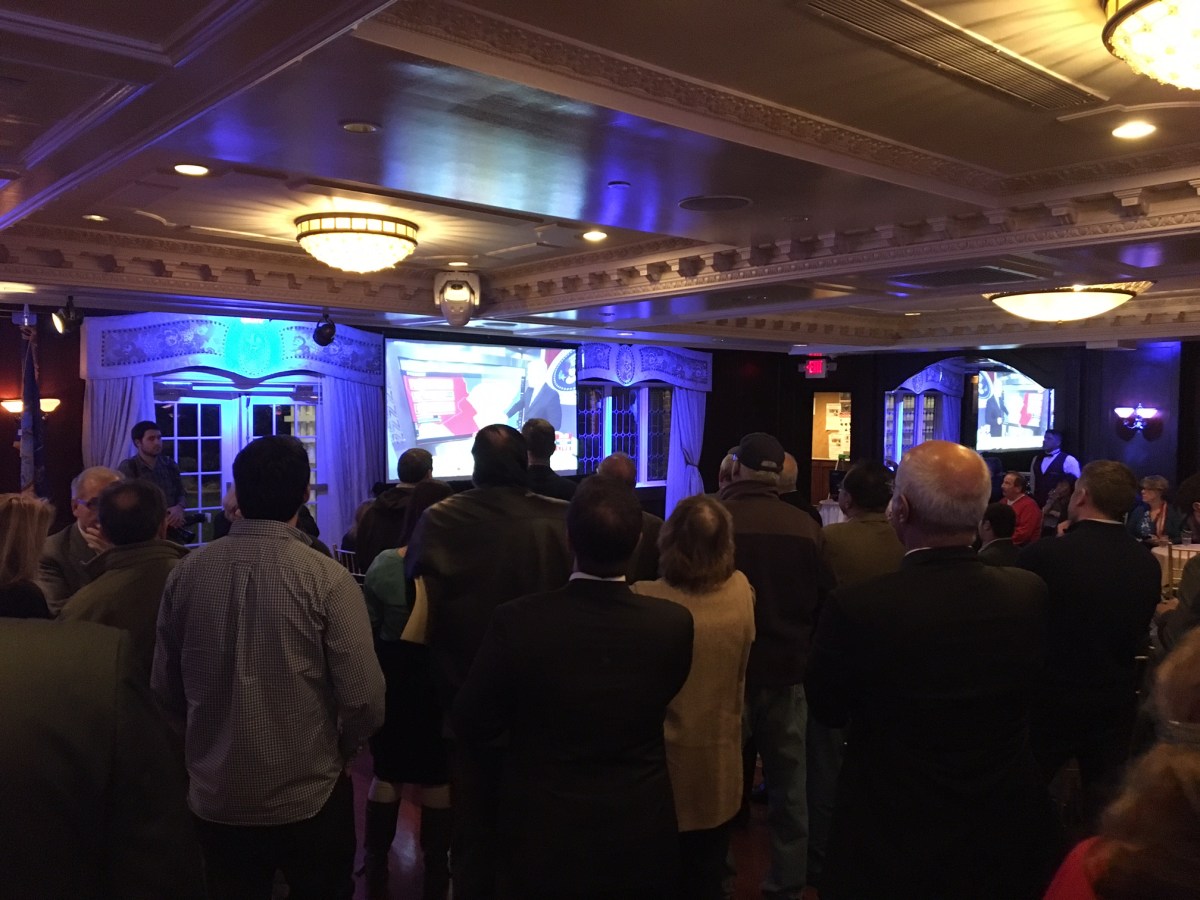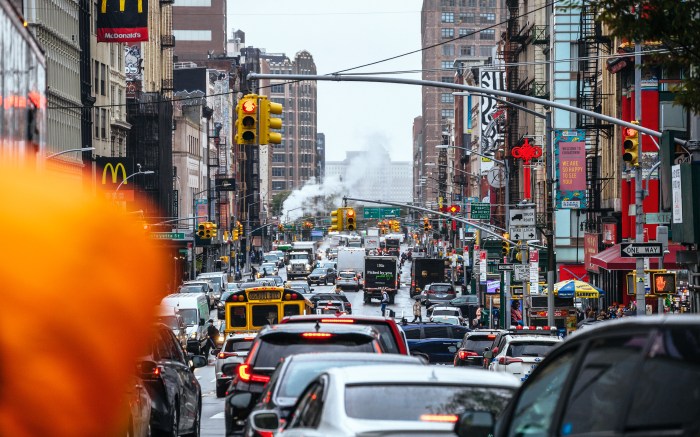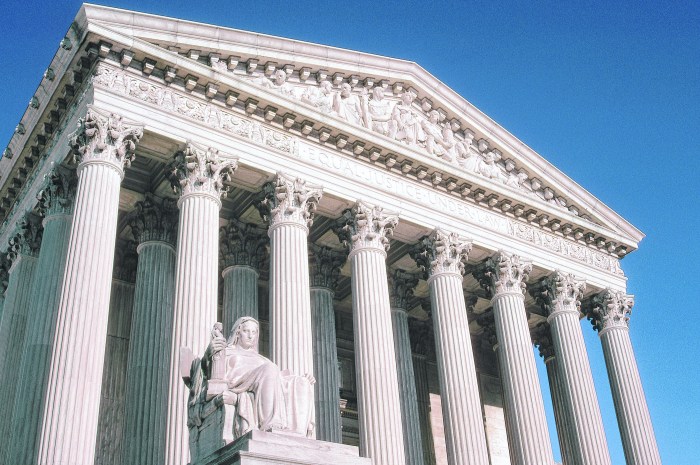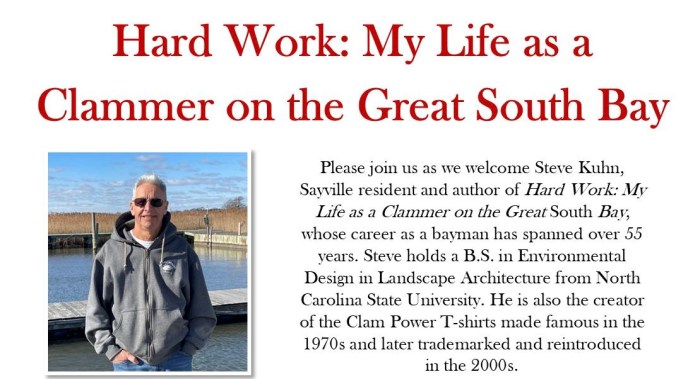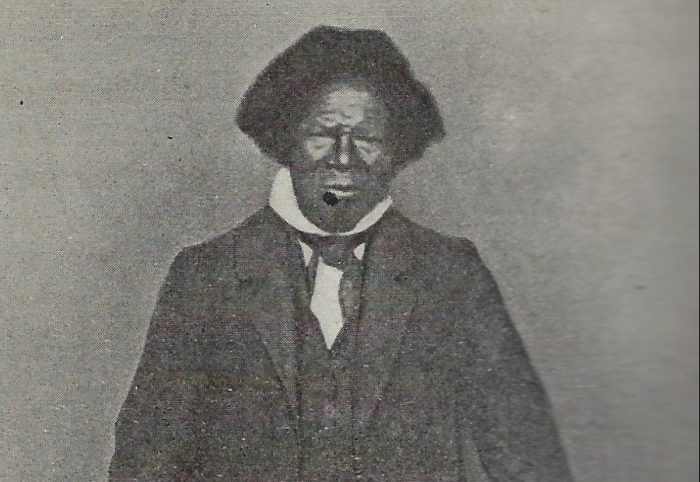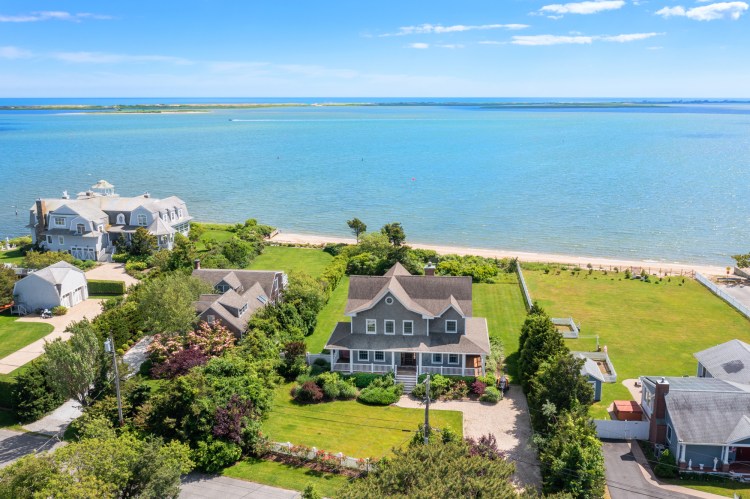Democrats in Nassau County poured into Westbury Manor Tuesday night prepared to celebrate the long-awaited coronation of Hillary Clinton whom the party elites had seemed assured would become the heir apparent to President Barack Obama’s eight-year legacy.
At first, they eagerly huddled around a large screen airing CNN’s election night coverage, with each projection and update feeling like the bottom half of an inning in a baseball playoff. The mood was upbeat, lubricated by the rapid flow of beers, nerve-settling scotch and crimson red wine. They mused about their party’s chances—confident in their heroine’s ability to blunt the forces of a populist uprising.
The polls all along had pointed to her victory, perhaps even a landslide over Donald Trump, the self-proclaimed billionaire turned reality TV show host.
But as the evening wore on, their confidence began to wane—as results rolled in precinct by precinct, state by state. Trump captured Ohio, North Carolina and Florida. Clinton’s chances of gaining a plurality in the Electoral College were shrinking as her firewall in states like Michigan and Wisconsin turned out to be more brittle than impenetrable. Worse still was Pennsylvania, a reliably Democratic swing state suddenly turning Republican red. They couldn’t believe what they were seeing on the map. They buried their heads in their hands, wiped away patches of sweat pooling along their brow and muttered inaudibly.
“This is bullshit!” a woman yelled as she turned away from the screen.
“This does not look good,” another woman offered. “This is scary!”
Unsure of what to make of the projections, Democrats whipped out their smartphones to seek advice, and maybe even a measure of hope, from The New York Times and FiveThirtyEight’s real-time forecast. The Times had predicted an 84-percent chance of a Clinton win, but then its forecast swung dramatically to Trump’s side. After midnight, the site said his chances of winning were greater than 60 percent.
It couldn’t be happening, but it was. Right before their eyes. Their dreams of victory were turning into a nightmare. Despondent local party leaders, their families and friends, along with campaign volunteers all stood watching while a GOP wave defiantly swept across the United States. Those gathered in Westbury were so desperate for good news—anything—that they cheered exuberantly when CNN called California for Clinton, a no-brainer. But on a night filled with surprises, nothing was a sure thing.
Trump, the man accused of trafficking in fear, racism, sexism and anti-Muslim rhetoric, was heading toward a remarkable victory—and the assembled masses could hardly believe it. When the pundits and the media said he couldn’t outlast all the other contestants in the Republican primary, he did. When they said there was no way he could win the White House, he did. Now he’s president-elect Trump.
That’s not how the night was supposed to go. Originally, the party-goers were planning to revel in watching Democrats win their Long Island and state-wide races, but as the hours wore on, their attention was squarely on the White House.
Nassau County Democratic Chairman Jay Jacobs, the host for the evening, made only two appearances the entire night. He didn’t have much to report on the presidential front either time.
“It’s going to be a long night,” Jacobs said, his expression taut. It was the only assurance he would offer.
As the election returns lasted past midnight, the large crowd began to dwindle.
“I’m surprised it’s close—I thought she was a shoe-in,” said a man named Jerry, who didn’t want to give his last name.
Among the few dozen people still remaining around 1 a.m. were three Democratic volunteers sitting on the floor, unable to hide the pain on their faces. It was a look shared by many Clinton supporters at the Jacob Javits Center in New York City, the site of their candidate’s election night party, when the cable network cut to them.
One 23-year-old volunteer watched the outcome in Westbury, and said that the unfavorable results revealed how “powerless we are.” He also observed how disconnected urban areas are from rural America.
“It shows we are not a country united,” he said.
The volunteer then tried to take a realistic view about why the electorate had rejected Clinton.
“People look for something to blame,” he said, noting that a lot of people in middle-America have lost jobs since the Great Recession. “They’re kind of left out to dry.”
“We didn’t think for a second that the other side could be so powerful,” added another campaign worker.
Around 1:30 in the morning Westbury Manor had mostly cleared out. There were only a handful of stragglers. By that point, there was nothing really left for Democrats to see. Their candidate had suffered a decisive defeat. Hillary Clinton would not make history as the first American woman president.
The election was over.



